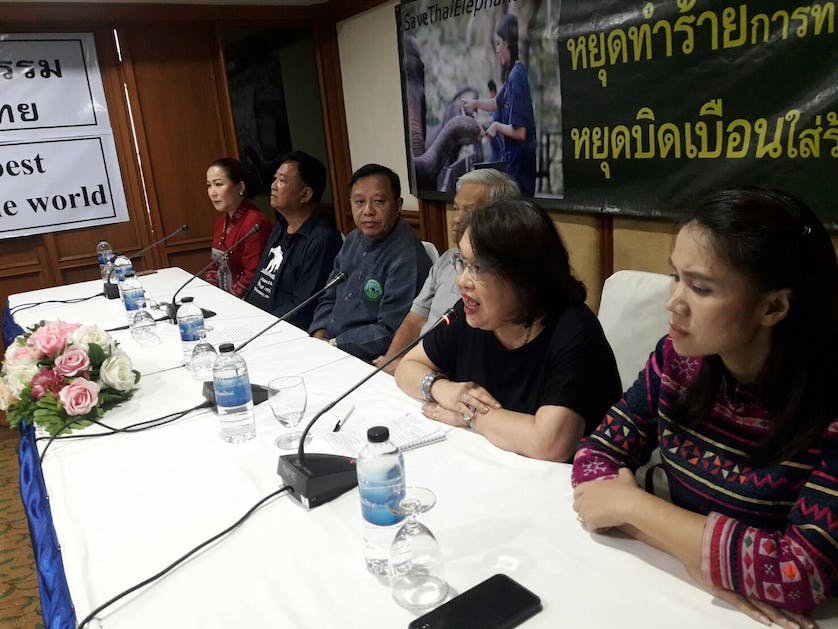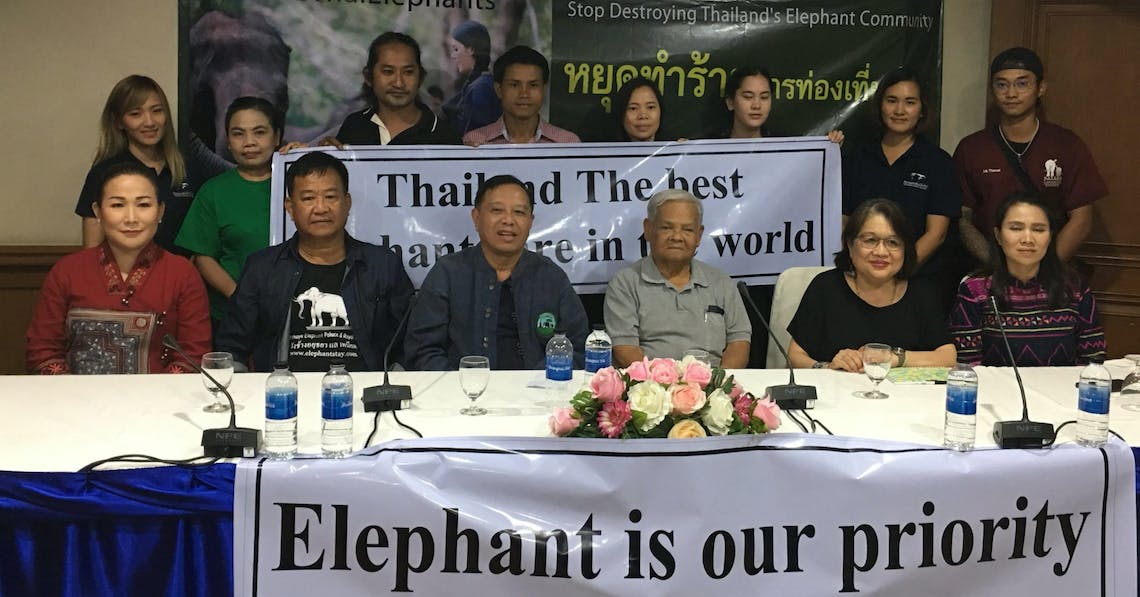CityNews – Thai elephant experts respond to an attack of the elephant tourism industry in the New Zealand Herald.
A press conference was held on August 5th by Thai elephant experts and members of academia, consisting of Dr. Boonta Chailert, the president of Mae Taeng Elephant Park and Clinic, Kaew Boonchart, a senior mahout of the late King Rama IX, Laitongrien Mepan, head of Elephant of the King Thailand group, Dr. Narumol Sriyanond, a documentary film maker known for her Elephant in Motion film, along with representatives from a number of elephant farms in Chiang Mai including Mae Sa Elephant Camp, Maetaman Elephant Camp, Baan Chang Elephant Park, Patara Elephant Farm and Chiang Mai Guide Association.
The press conference was held in response to a report in The New Zealand Herald whichpublished an article with pictures of an injured elephant, supposedly harmed from the use a mahout metal hook.
The consensus of the meeting was that the report cannot be credited as the images used are anonymous images from Twitter with no context which can be verified. There is also a quote in the article from an unnamed spokesman from the Tourism Authority of Thailand, begging tourists not to ride elephants, that is also in question of its authenticity, as that is not a stand of the Thai authorities or any senior member of the industry. The report is said to create a false and misleading impression of Thailand’s elephant tourism industry and shows a lack of understanding of Thai culture and its millennia long relationship with elephants.

Vassana Tongsuk, a member of the board of directors of Mae Taeng Elephant Camp, unveiled that for over two decades, the Thai elephant tourism has been under attack from a certain group of people within Thailand itself. She said that these constant attacks, or ‘revelations’ seen in the international press, is a widely known and concertedconspiracy created to either gain advantage for a certain business or to diminish its competitors. Such schemes have been undermining and blinding the progress of Thai elephant reform, which, she said, has advanced greatly in the past two decades. Thai elephants were on the verge of extinction following the end of the wood-logging industry [in 1989], and it is only because of the tourism industry that numbers are growing and thousands of elephants are now living in good health, earning a good living through managed tasks and performances, and seeing an increase in fertility rates. According to Vassana, it is the tourism industry that has saved elephants from having to beg on the streets.
Vassana also urges the government to take responsibility in addressing these false attacks from foreign media as it is harming the tourism industry.
Dr. Chatchote Thitaram, Director of Centre of Excellence in Elephant Research and Education, stated that the treatment and wellness of Thai elephants have advancedgreatly from three to four decades ago, when the elephant tourism industry began. With greater knowledge and experience, there has been great development in creating and setting standards for elephant farms, with clear goals of improving the wellbeing of elephants, and importantly, their mahouts.
Dr. Narumol Sriyanond, the director and producer, added that the domestication of Thai elephants [which is believed to date back to four millennia] is a culture that westerners do not understand. Elephants have been domesticated and worked alongside man for a long time and there are best practices in place which continue today. Most tourists appear to have the impression that elephants should roam in the wilderness, whereas that has not been the case, apart from small pockets of wild elephants, for a long time. Elephants are born into families and grow up being a family member, she said.
Riding elephants in itself is not harmful, according to every single expert on Asian elephants Citylife has ever spoken to over the past two decades, as long as they only work a few hours a day and are properly trained and cared for. What is harmful, is when so-called parks or sanctuaries, deny elephants their mahouts, allowing them to roam free and mingle with tourists. This is when lives are most in danger.
For further reading see Citylife’s 2017 article for more information or for a more in-depth look at the importance of mahouts, read our ex Managing Editor Hilary Cadigan’s article featured in The Atlantic.
